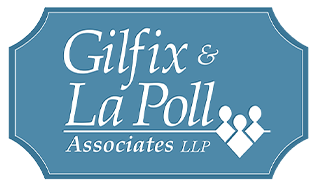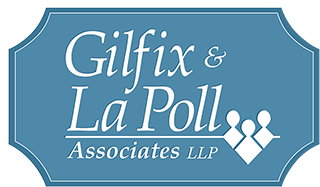Nowhere is it written that you have to leave your estate in equal shares to all of your children. You have complete control of your assets and you can do with them as you please. Notwithstanding this fact, the vast majority of us leave our assets to our children. We typically treat them equally and simply distribute the estate to them.
On occasion, however, it makes sense to think more deeply about these issues. It may make sense to be more creative and responsive to differences among and between our children.
Wealth and the concept of need
What if you have two children, one of whom is very wealthy and one of whom gets by on a modest income? If your estate is valued at $1 million, does it make sense to divide the estate equally between them? Consider treating these children unequally. If one child may view inheritance as "another $500,000" while the other is in serious financial need, consider leaving more to the child in greater need. Our experience is that the wealthy child will have minimal or non-existent resentment, particularly if there is an open discussion about the thinking and the decision.
A disabled child
If you have a disabled child, one who is unable to maintain gainful employment because of a physical or mental limitation, that adult child may be receiving public benefits such as Supplemental Security Income (SSI) and Medi-Cal, which pays the medical bills. If you leave her inheritance, he/she will lose eligibility for these programs. The child may also lose his/her place in subsidized housing and may lose the services of a county-provided social worker.
A better alternative may be the use of a "Special Needs Trust" (SNT). This is a very powerful trust that holds any amount of money for the benefit of a disabled child without interfering with ongoing eligibility for public benefits. The money in the trust can be used to pay for goods and services not provided by public benefits, such as a companion, a physician who will not accept Medi-Cal or a television set. We consider a Special Needs Trust a "must" for families where there is a disabled child.
A problem child
Some of us have children who are irresponsible, who have problems with the law, and/or who abuse drugs or alcohol. Leaving money to such individuals can reinforce their bad habits and be harmful, rather than helpful. For such individuals, it can make much more sense to have assets held in trust under the control of a trusted individual (the "trustee"). Such trusts can take myriad forms. They may call for the distribution of income only while preserving the principle for the next generation. They can be "incentive trusts" providing for distributions when the child achieves certain milestones, such as obtaining a university degree, holding a job for at least one year, or otherwise proving that he or she has achieved a higher level of responsibility. Such trusts can also punish unacceptable behavior.
The mixed blessing of wealth
Inheriting too much money can have a beneficial impact on an individual, or it can be affirmatively harmful. This is an extremely complicated question that is difficult to discuss in the abstract. Every family's circumstances are different. For some, it makes sense to simply limit the amount that is distributed to a child. For others, it makes sense to distribute the money over many years so that there is enough money to be comfortable, but not so much that one can get by without being a productive member of society and maintaining employment.
The "good child" losing assets to divorce and creditors
A child's inheritance can be protected by a "Family Protection Trust". Your child can control and enjoy assets in this trust, but will not lose them if he or she endures a divorce or is sued.
All of these topics can themselves be the subject of a book-length article. The basic message, however, is simple: Give serious thought to the distribution plan you integrate into your will or trust. Be sure that it is appropriate, responsive to reality, and sensitive to the needs of your family members.
Note: This article provides information, it does not constitute legal advice.
Gilfix & La Poll Associates LLP attorneys practice elder law and estate planning and are available to answer any questions about Trusts, Durable Powers of Attorney for asset management, Advance Health Care Directives, and any other appropriate planning options.

